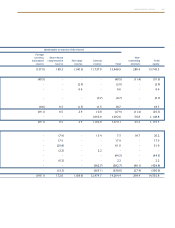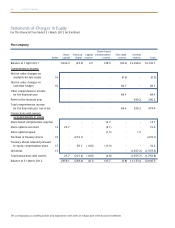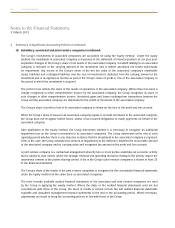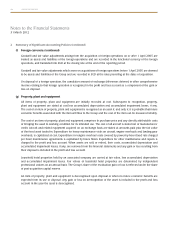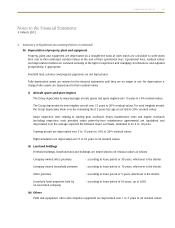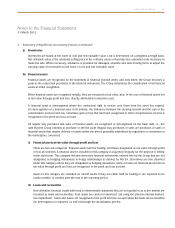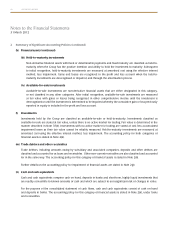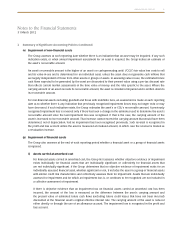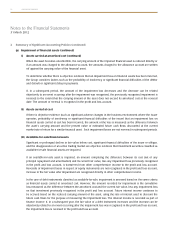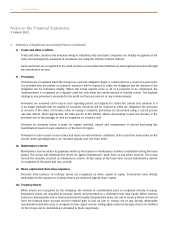Singapore Airlines 2012 Annual Report Download - page 106
Download and view the complete annual report
Please find page 106 of the 2012 Singapore Airlines annual report below. You can navigate through the pages in the report by either clicking on the pages listed below, or by using the keyword search tool below to find specific information within the annual report.
104 SINGAPORE AIRLINES
Notes to the Financial Statements
31 March 2012
2 Summary of Significant Accounting Policies (continued)
(d) Subsidiary, associated and joint venture companies (continued)
The Group’s investments in associated companies are accounted for using the equity method. Under the equity
method, the investment in associated company is measured in the statement of financial position at cost plus post-
acquisition changes in the Group’s share of net assets of the associated company. Goodwill relating to an associated
company is included in the carrying amount of the investment and is neither amortised nor tested individually
for impairment. Any excess of the Group’s share of the net fair value of the associated company’s identifiable
assets, liabilities and contingent liabilities over the cost of investment is deducted from the carrying amount of the
investment and is recognised as income as part of the Group’s share of profit or loss of the associated company in
the period in which the investment is acquired.
The profit or loss reflects the share of the results of operations of the associated company. Where there has been a
change recognised in other comprehensive income by the associated company, the Group recognises its share of
such changes in other comprehensive income. Unrealised gains and losses resulting from transactions between the
Group and the associated company are eliminated to the extent of its interest in the associated company.
The Group’s share of profit or loss of its associated company is shown on the face of the profit and loss account.
When the Group’s share of losses in an associated company equals or exceeds its interest in the associated company,
the Group does not recognise further losses, unless it has incurred obligations or made payments on behalf of the
associated company.
After application of the equity method, the Group determines whether it is necessary to recognise an additional
impairment loss on the Group’s investment in its associated companies. The Group determines at the end of each
reporting period whether there is any objective evidence that the investment in the associated company is impaired.
If this is the case, the Group calculates the amount of impairment as the difference between the recoverable amount
of the associated company and its carrying value and recognises the amount in the profit and loss account.
A joint venture company is a contractual arrangement whereby two or more parties undertake an economic activity
that is subject to joint control, where the strategic financial and operating decisions relating to the activity require the
unanimous consent of the parties sharing control. A list of the Group’s joint venture companies is shown in Note 25
to the financial statements.
The Group’s share of the results of the joint venture companies is recognised in the consolidated financial statements
under the equity method on the same basis as associated companies.
The most recently available audited financial statements of the associated and joint venture companies are used
by the Group in applying the equity method. Where the dates of the audited financial statements used are not
co-terminous with those of the Group, the share of results is arrived at from the last audited financial statements
available and unaudited management financial statements to the end of the accounting period. Where necessary,
adjustments are made to bring the accounting policies in line with those of the Group.



